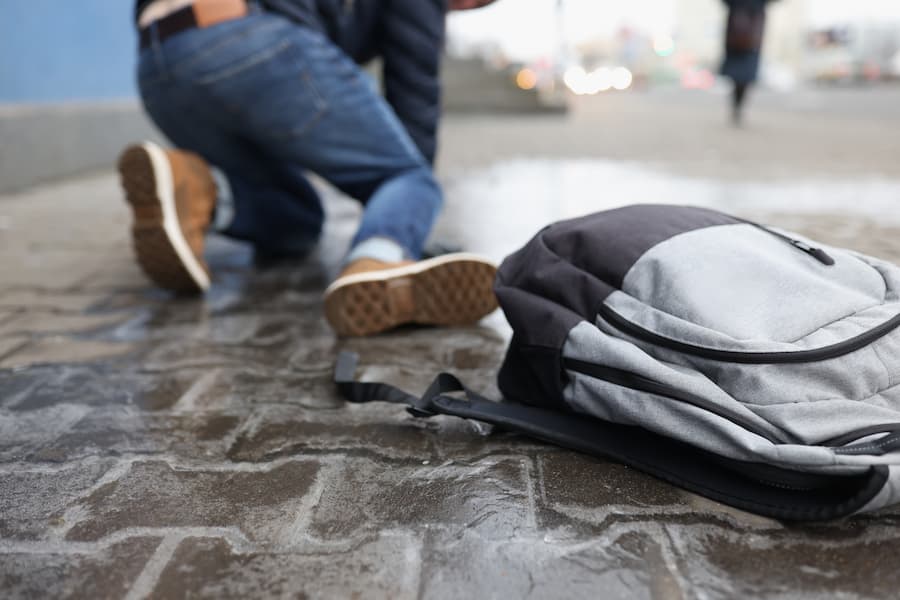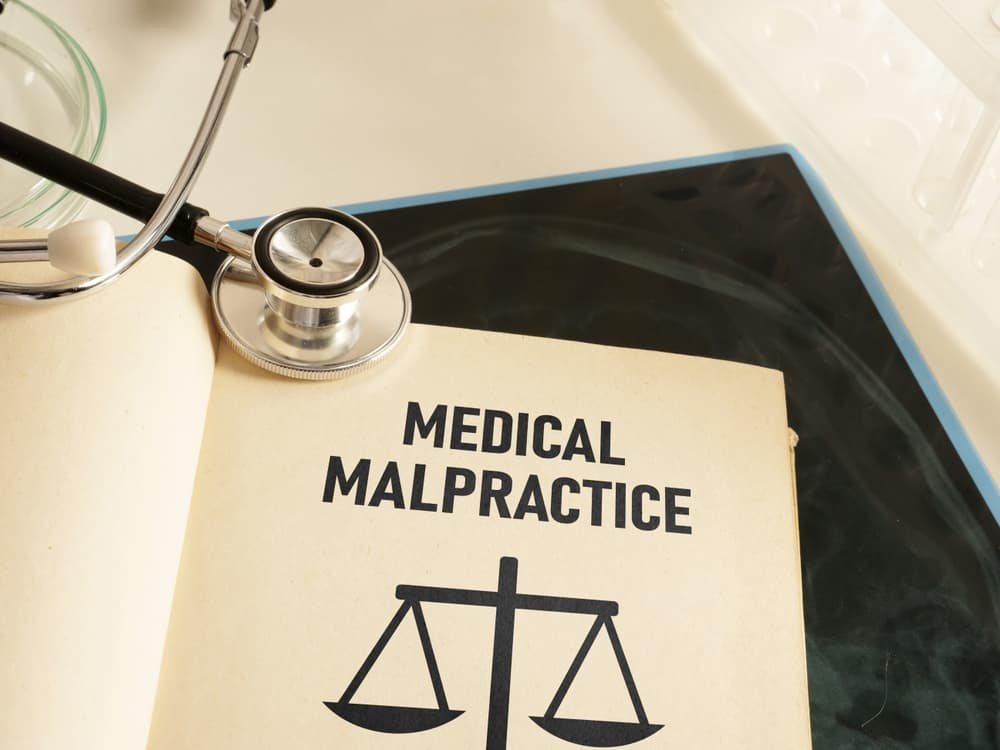Myrtle Beach, South Carolina, is a beloved vacation destination for millions of visitors annually. People flock to its sandy shores, amusement parks, and elegant resorts to unwind and have a good time.
Accidents can still happen amid the fun and excitement, and a slip and fall can suddenly turn your dream vacation into a nightmare. Reach out to a a Myrtle Beach slip and fall lawyer.
Premises Liability and Duty of Care

Premises liability is a legal concept that holds property owners and managers responsible for any injuries on their premises due to dangerous conditions or hazards.
In South Carolina, premises liability law applies to both public and private property, including vacation resorts. The property owner or manager may be legally responsible for damages if their carelessness contributes to a guest or visitor's injury.
Vacation resorts owe a duty of care to their guests. Their legal obligation is to take reasonable steps to ensure the property is safe and free of any hazards that could cause accidents or injuries. This duty of care extends to maintaining common areas, providing adequate lighting, addressing wet or slippery surfaces, keeping walkways clear of debris, and promptly addressing any known hazards.
How Duty of Care Relates to Slip and Fall Accidents
Slip and fall accidents may occur when a vacation resort fails to meet its duty of care. If a resort manager, for example, is aware that a hallway floor is wet but fails to place adequate warning signs or take steps to dry the area, they could be liable for any injuries that a guest who slips and falls sustains.
The same applies to any other hazards that resort employees know, or should reasonably know, that pose a danger to guests. In proving negligence in a slip and fall case, it is crucial to demonstrate that the resort breached its duty of care, leading to the accident and subsequent injuries.
Establishing Negligence in Slip and Fall Cases
To establish negligence in slip and fall cases at vacation resorts, an injured party must prove the following elements:
- The resort owed a duty of care to the guest.
- The resort breached its duty of care by failing to act appropriately to prevent or address a dangerous condition.
- The guest suffered an injury because of the dangerous condition.
- The resort's breach of the duty of care caused the guest's injury.
An attorney can determine which may best apply to your case.
Examples of Negligence by Vacation Resorts
Negligence by vacation resorts in slip and fall cases may manifest in various ways, including but not limited to:
- Failing to promptly clean up spills that create slippery surfaces.
- Failing to provide adequate lighting in stairwells or walkways.
- Ignoring or not acting on guest complaints regarding potential hazards.
- Failing to provide proper warning signs for known hazards.
- Failure to maintain or repair damaged flooring, handrails, or stairs.
Depending on the particulars of your case, one or more of these examples may make sense. Your personal injury attorney can determine the particulars of your slip and fall case.
Challenges in Proving Negligence
Proving negligence in slip and fall cases can be challenging, as it often requires demonstrating that the resort staff knew or should have known about the hazard but failed to act appropriately.
A personal injury attorney can gather evidence to substantiate your claim, establish the resort's negligence, and navigate the complexities of South Carolina premises liability law. An attorney can also counter potential defense arguments that may attempt to deflect blame or minimize your injuries.
Notice of Hazard and Constructive Notice
In slip and fall cases, you must prove that the vacation resort had notice of the hazard that caused the injury. Establishing notice strengthens the argument that the resort was negligent in failing to address the dangerous condition and helps demonstrate that the resort's negligence caused the guest's injury.
Responsible parties can prove two types of notice in slip and fall cases: actual notice and constructive notice.
Actual Notice
This notice occurs when the resort staff has direct knowledge of the dangerous condition through witnessing the hazard, receiving a complaint, or obtaining information from an employee.
Constructive Notice
Constructive notice occurs when the resort employees should have known about the hazard, even if they did not have actual knowledge. People can establish constructive notice by demonstrating that the hazard existed for a sufficient time, such that a reasonably attentive resort staff should have discovered and addressed it.
Proving actual or constructive notice is critical to a successful slip and fall claim. An experienced personal injury attorney can gather evidence, such as witness statements and maintenance records, to establish that the resort had notice of the hazard and negligently addressed it.
Statute of Limitations for Slip and Fall Claims
In South Carolina, slip and fall injury cases are subject to a three-year statute of limitations. An injured party has, therefore, three years from the accident date to file a lawsuit against the vacation resort. If the injured party does not file the lawsuit within this time frame, they may lose their right to seek compensation for their injuries.
You must file your lawsuit promptly to preserve your legal rights and ensure you can seek compensation for your injuries. As time passes, a responsible party may lose evidence, witnesses may become unavailable, and memories may fade, all of which can weaken your case.
Insurance companies and vacation resorts may also refuse to negotiate a fair settlement if the statute of limitations deadline will soon expire.
Exceptions to the Statute of Limitations
Limited exceptions to the three-year statute of limitations for slip and fall claims in South Carolina include:
- The discovery rule: If the injured party discovered their injury after the accident, the responsible party may extend the statute of limitations, running from the date of discovery rather than the date of the accident.
- Cases involving minors: If the injured party is a minor, the responsible party may toll or pause the statute of limitations until the minor turns 18, at which point they have three years to file the lawsuit.
An experienced personal injury attorney understands the statute of limitations specific to your case and can ensure your claim is filed on time.
Types of Damages in Slip and Fall Cases
In slip and fall cases, injured parties can generally seek two categories of damages. Economic damages may include quantifiable financial losses resulting from the accident, such as medical expenses, lost earnings, and future loss of earning capacity.
Noneconomic damages include intangible losses, such as pain and suffering, emotional distress, and loss of enjoyment of life.
Gathering and Preserving Evidence
You need substantial evidence to establish liability and secure fair compensation in slip and fall cases. Proper documentation and preservation of evidence can significantly improve your chances of proving negligence on the part of the vacation resort.
Types of Evidence To Collect
Critical pieces of evidence your attorney can collect include:
- Photographs: Photos of the accident scene that show, for example, the hazard that caused the slip and fall, any warning signs, or any visible injuries provide critical evidence.
- Witness statements: Contact information and statements from any witnesses who saw the accident occur or who can testify to the hazard's presence are essential to establish evidence.
- Incident reports: If the resort staff completed an incident report, obtaining a copy provides valuable evidence for your case.
- Medical records: Detailed records of your injuries, treatments, and prognosis help establish the extent of your damages.
- Surveillance footage: If the resort has security cameras that captured the accident, this footage can be robust evidence.
By diligently gathering and preserving evidence, you can improve your chances of building a solid case and securing fair compensation for slip and fall injuries.
Resort Liability in Slip and Fall Accidents
Vacation resort employees are legally responsible for keeping their premises reasonably safe for guests. When resort staff fails to maintain a safe environment and a guest suffers a slip and fall injury as a result, the resort may be liable for any damages that result from staff negligence.
Examples of situations where a resort may be liable for a slip and fall accident are:
- Wet or slippery floors: If the resort staff fails to address a wet or slippery floor promptly—for example, by not placing warning signs or drying the area—and a guest slips and falls as a result, the resort may be liable.
- Uneven surfaces: The resort may be liable if a guest trips and falls because of an uneven walking surface for which the staff should have repaired or provided warning signs.
- Poor lighting: If a guest falls due to poor lighting that makes it difficult to see hazards, and the resort employees knew or should have known about the issue, the resort may be liable for the accident.
An experienced personal injury attorney can determine whether the vacation resort may be liable for your injuries by thoroughly examining the circumstances surrounding your slip and fall accident.
Insurance Coverage and Settlement Negotiations
In most slip and fall cases at vacation resorts, the resort's insurance company will participate in the claim process. Insurance coverage protects the resort from financial losses resulting from personal injury claims, which means that the insurance company will be responsible for compensating you for your damages if the responsible party finds the resort liable.
Dealing with insurance companies in slip and fall cases can be challenging, as many try to minimize their financial exposure. They may attempt to deny or undervalue your claim, alleging that the resort was not at fault or that your damages are not as significant as you claim.
Insurance adjusters may also try to pressure you into accepting a quick, low settlement offer before you fully understand the extent of your damages and legal rights.
The Importance of Legal Representation
Hiring an experienced personal injury attorney can significantly improve your chances of receiving fair compensation for slip and fall injuries.
Benefits of retaining legal representation include:
- Experience navigating the legal process: A skilled attorney can ensure that you filed your claim correctly and complied with all relevant statutes and regulations.
- Strong negotiation skills: Insurance companies are more likely to offer a fair settlement when they face the prospect of going to court against an attorney with experience in personal injury cases.
- Accurate assessment of damages: Your attorney can determine the full extent of your economic and noneconomic damages and fight for compensation accordingly.
- Peace of mind: With an attorney handling your case, you can focus on recovering from your injuries rather than navigating the legal process alone.
In slip and fall cases, an attorney can investigate the incident and gather the necessary evidence to support your claim, establishing negligence on the part of the vacation resort, assessing the extent of your damages, and calculating a fair settlement amount.
Tips for Choosing the Right Attorney
When searching for the right attorney to handle your slip and fall case, look for experience. Seek an attorney with a proven track record of handling personal injury cases, particularly slip and fall claims. Many personal injury attorneys offer free, no-obligation consultations, during which you can discuss your case and determine whether the attorney is a good fit for you.
Read reviews and seek referrals. Research online reviews and ask friends or family members for recommendations to help you find a reputable attorney. By selecting the right attorney to represent you, you can significantly improve your chances of obtaining the compensation you deserve for your slip and fall injuries.
Work With an Experienced Personal Injury Attorney

Slip and fall injuries are never fun. With a personal injury attorney's services, however, you can minimize stress during the legal process and save yourself valuable time and energy to get back to focusing on what matters.








